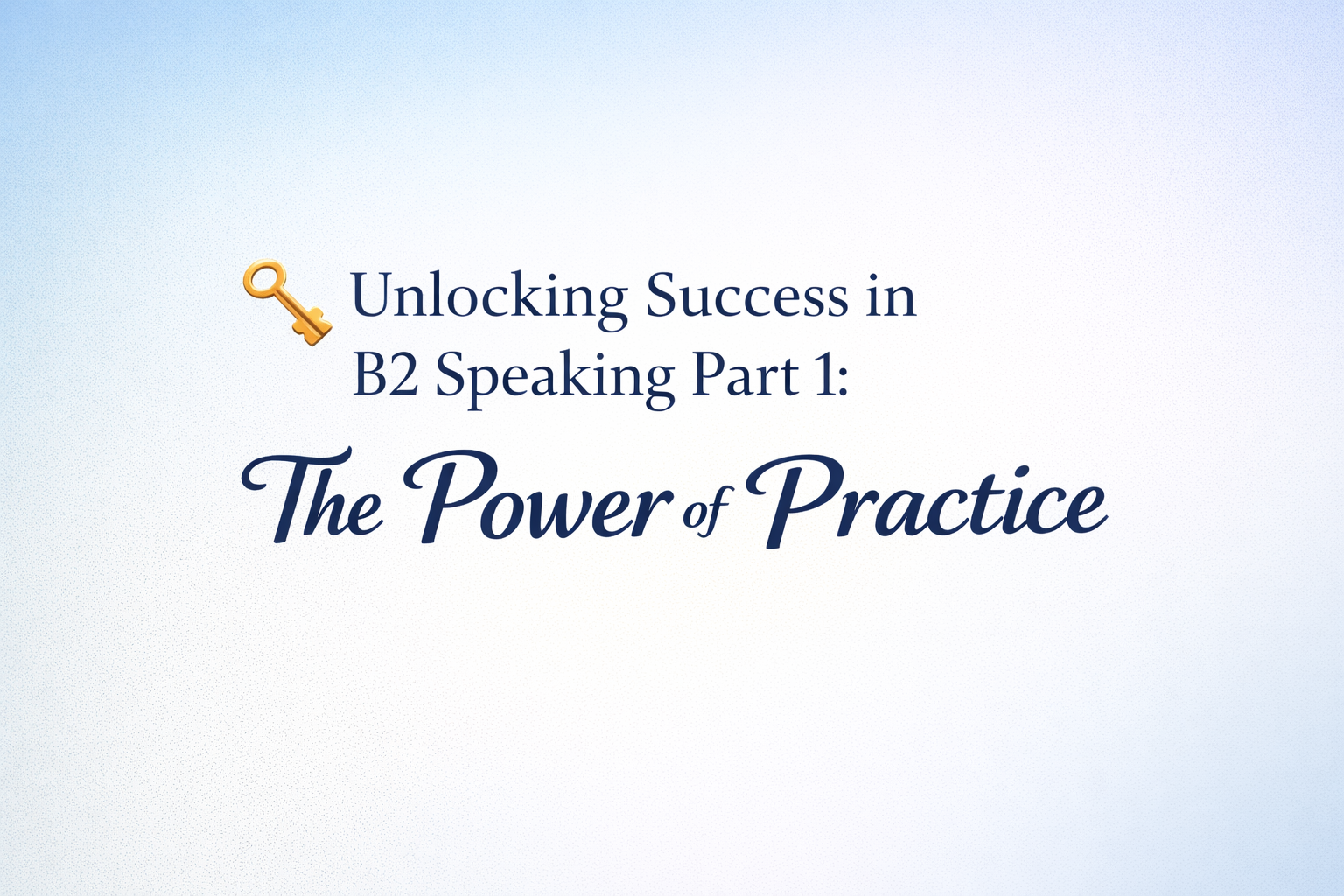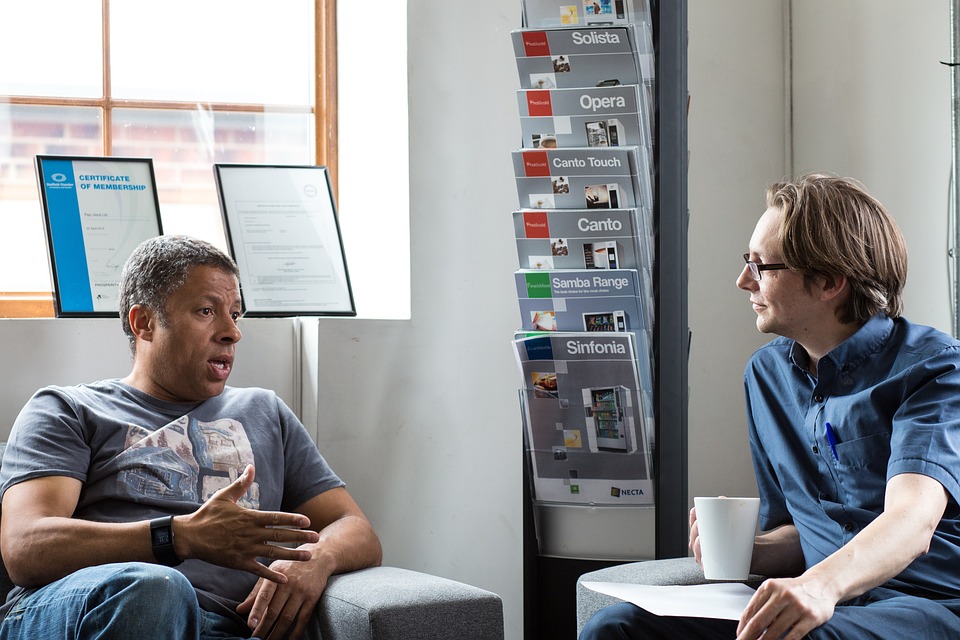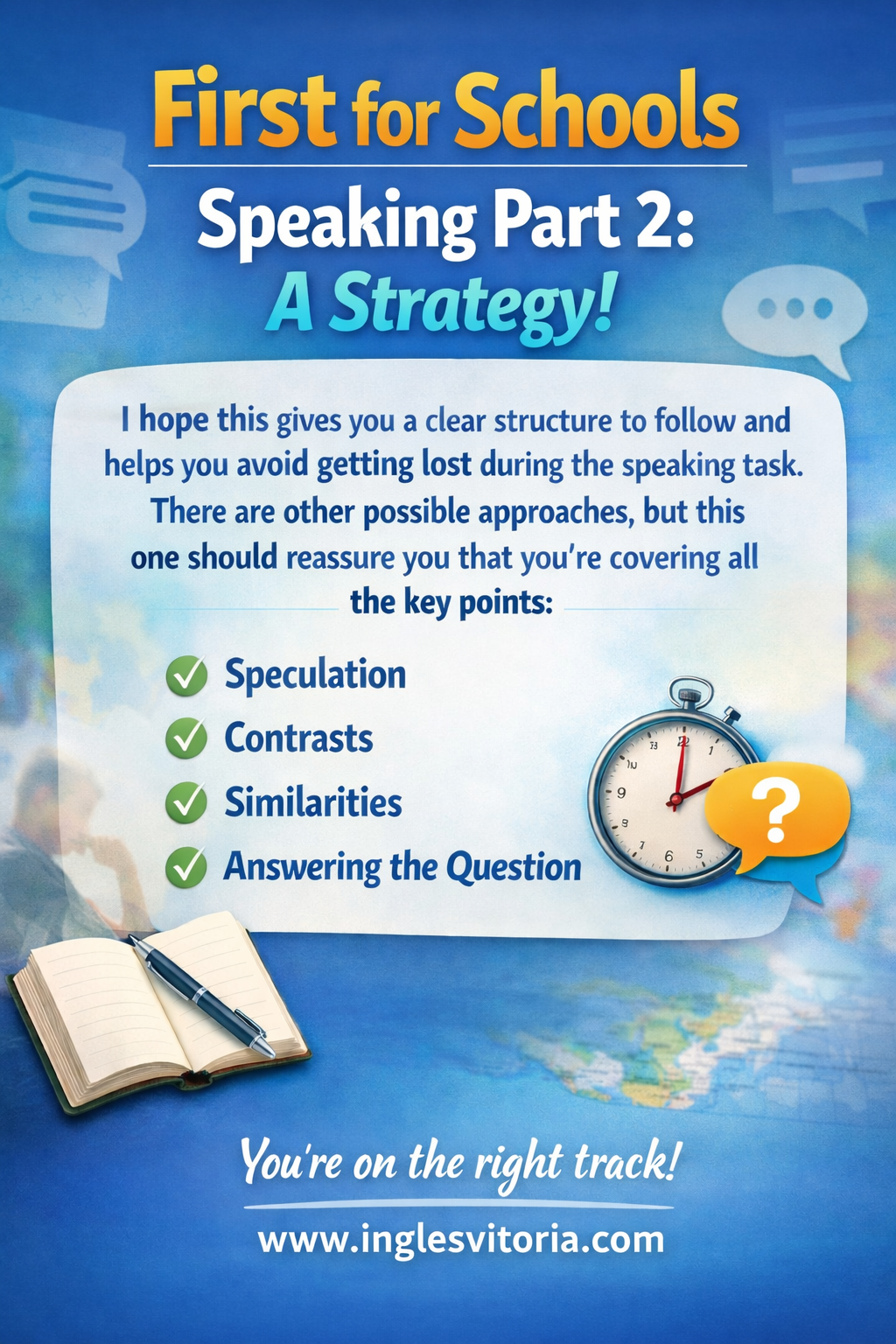Category: Speaking
B2 First Speaking Part 1 – List of questions to practise
 Preparing for the B2 First speaking exam can feel like a daunting task, but the key to success lies in consistent practice and self-preparation. By regularly engaging with a wide range of questions, you’ll build confidence, fluency, and a natural speaking style. It’s important to remember that while familiarity with common questions is helpful, memorising answers isn’t the goal. Instead, aim for spontaneous expression. Continue reading “B2 First Speaking Part 1 – List of questions to practise”
Preparing for the B2 First speaking exam can feel like a daunting task, but the key to success lies in consistent practice and self-preparation. By regularly engaging with a wide range of questions, you’ll build confidence, fluency, and a natural speaking style. It’s important to remember that while familiarity with common questions is helpful, memorising answers isn’t the goal. Instead, aim for spontaneous expression. Continue reading “B2 First Speaking Part 1 – List of questions to practise”
First for schools Speaking Part 2: a strategy!
Here are some of the most common mistakes candidates make in B2 First Speaking Part 2, clearly explained, with tips on how to avoid them. Continue reading “First for schools Speaking Part 2: a strategy!”
Other ways to say “How are you?” and how to respond
 Go Beyond “How are you?”
Go Beyond “How are you?”
When learning English, many students fall back on the same exchange:
A: How are you?
B: Fine, thank you. And you?
That’s correct, but it can sound a bit repetitive — and native speakers often use other expressions in everyday conversation. Here are some great alternatives you can try.
Continue reading “Other ways to say “How are you?” and how to respond”
3 basic pronunciation tips
 Intended for:
Intended for:
Spanish speakers learning English at an Elementary or Lower-Intermediate level or those with a higher level but without experience in learning pronunciation.
Self-study for speaking tests: 4 steps that will raise your game

Speaking exams are tough but with the right preparation and mindset, you can step into the examination hall with a good dose of self-confidence in your abilities and a feeling of being in control of the situation rather than overwhelmed by it.
Keep reading for some ideas to help you build confidence and take away some of the anxiety so that you can perform better on exam day.
Continue reading “Self-study for speaking tests: 4 steps that will raise your game”
Out and about and other BINOMIALS
 A binomial is formed by two words and a conjunction that joins them as in: “After a quick visit to the hotel to drop off her bags, she’s been out and about exploring the city all day”.
A binomial is formed by two words and a conjunction that joins them as in: “After a quick visit to the hotel to drop off her bags, she’s been out and about exploring the city all day”.
The order of the words is fixed and if you reverse it, it would sound unnatural and be wrong, e.g. “about and out”.
What follows is a selection of some binomials that I consider useful. I encourage you to learn them and try to use one next time you have a conversation in English. Continue reading “Out and about and other BINOMIALS”
6 phrasal verbs to speak about yourself

6 phrasal verbs to speak about yourself that will enhance your Speaking (Part 1) in the CAE exam.

The way you are seen by people, the impression you give.
You come across as a friendly/funny/serious/fussy … person, based on what you project to others.
“I would like to come across as a person who knows how to listen.” Continue reading “6 phrasal verbs to speak about yourself”
Fillers: Buying Time

At the beginning of the next video extract, Emily Blunt is interviewed about the film The girl on the train. Notice how both herself and her interviewer intersperse their utterances with fillers.
I have listed the fillers they use (some of them repeatedly) in the first section of the video 0:00-02:10. Continue reading “Fillers: Buying Time”
Like it or not, small talk is on the menu

Small talk can be awkward and often feels pointless, and yet it’s a part of our everyday lives, no matter what language we speak. At first glance, it seems logical to assume that if you’ve mastered the art of small talk in your native language, transferring those skills to English conversations would be straightforward. However, that’s not always the case.
This could be a significant concern for business English learners, whose ability to engage in small talk is often key to making the right connections when networking. For travellers, small talk can lead to more enriching experiences, opening doors to new friendships and unexpected opportunities during their trips.
Continue reading “Like it or not, small talk is on the menu”
 Have you ever noticed that English spelling feels like a game of hide-and-seek? Sometimes letters are silent, sometimes not.
Have you ever noticed that English spelling feels like a game of hide-and-seek? Sometimes letters are silent, sometimes not. 
